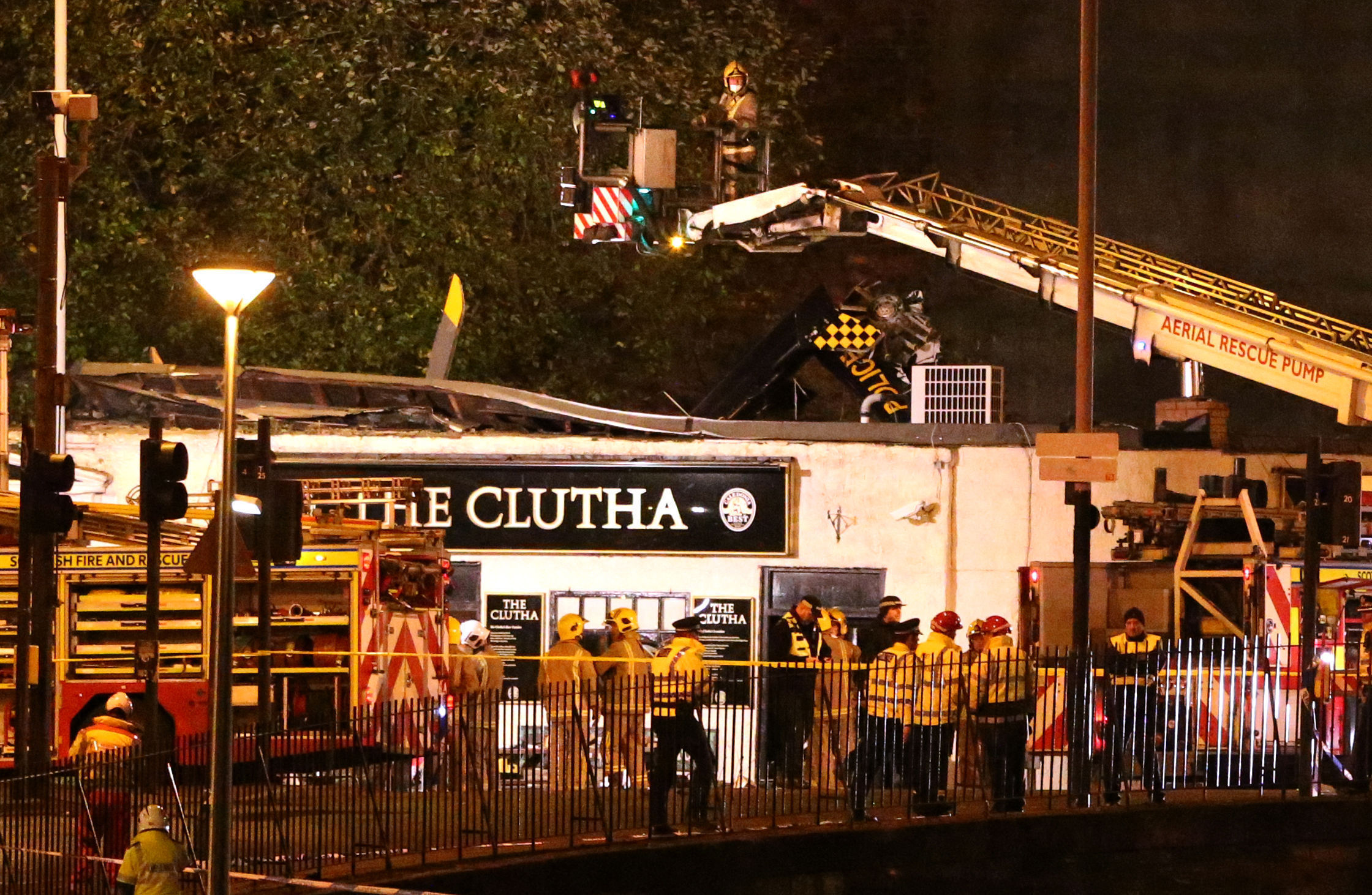
Relatives who attended an Air Accidents Investigation Branch (AAIB) briefing ahead of the report’s official publication tomorrow were told investigators had identified an issue with the position of the aircraft’s fuel switches and that the engine had been “starved” of fuel.
They were told to keep the contents of the 102-page report confidential as a second group of relatives are due to be briefed this morning.
Dozens of people were enjoying a night out at the Glasgow pub on November 29 2013 when a police helicopter returning to its base on the banks of the River Clyde crashed through the roof.
The AAIB said in an interim report published last year that both engines on the aircraft failed, but the cause was not outlined.
The interim report said the engines had “flamed out” before the helicopter crashed at 10.22pm, killing the pilot and two police constables on board as well as seven people in the pub.
Speaking after last night’s briefing Ian O’Prey, whose son Mark died in the bar, told STV News: “The pilot wasn’t at fault, that’s for certain.
“There were switches left on, or off, and the engine had fuel starvation, that’s basically it.”
John McGarrigle, who lost his father, John, said: “All tonight has done for me is raise loads more questions.
“My head is scrambled, I’m that angry.
“Flight data recorders should be installed in every passenger-carrying aircraft – simple as. If we had that, we would know a lot more.
“It’s just question upon question upon question.
He added: “I’m furious. I came here very optimistic, very hopeful, knowing that the AAIB are very impartial but I just feel really let down by those guys because these are the people that we came here tonight to get answers off of and we never got any answers.”
Anne-Marie Kennedy, who was working behind the bar and was trapped in the wreckage, said: “It’s shown me that they should have black boxes for defo, it’s shown me the need for other regulation, but other than that nothing.”
Jim Morris, partner at Irwin Mitchell solicitors and an expert in aviation law, said the investigation had been impeded by the lack of a black box flight recorder.
He said: “The AAIB have spent almost two years working extremely hard in the absence of this crucial piece of real-time evidence to piece together what happened.
“It is clear from this report that the lack of a flight data recorder has hampered this investigation, and for that reason there are an awful lot of unanswered questions about this accident.
“It is not absolutely clear why the fuel did not reach these engines.
“The report goes into significant detail in its analysis but it is clear from what is said in the report that they can’t answer all the questions on the full chain of events to determine why the fuel did not reach these engines.”
He said that in addition to mechanical failure, there were “unanswered questions” about the possible human factors as well.

Enjoy the convenience of having The Sunday Post delivered as a digital ePaper straight to your smartphone, tablet or computer.
Subscribe for only £5.49 a month and enjoy all the benefits of the printed paper as a digital replica.
Subscribe